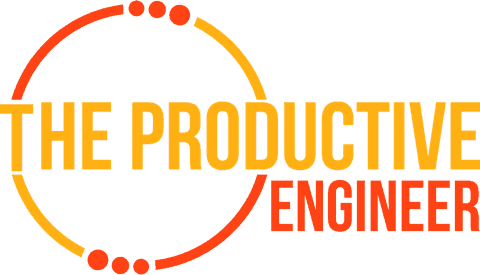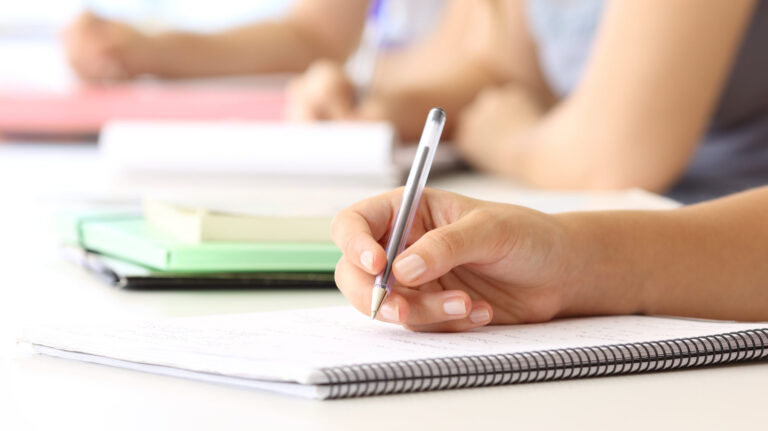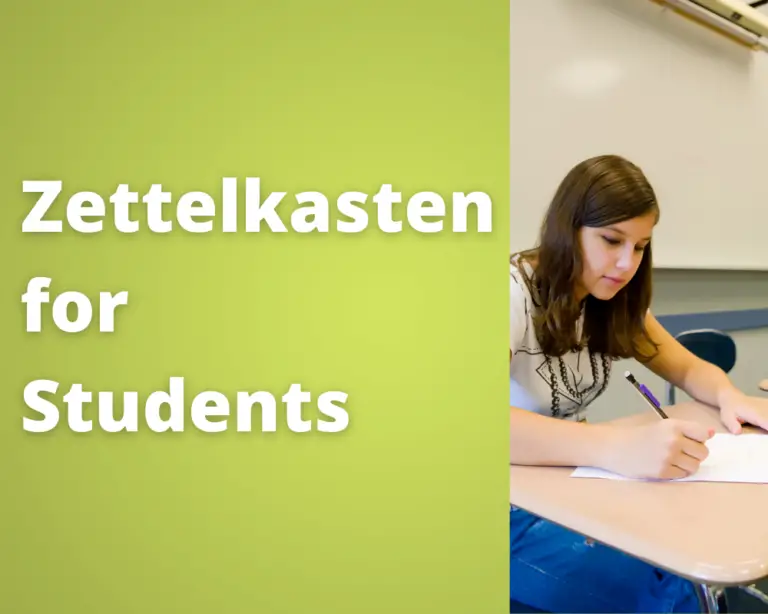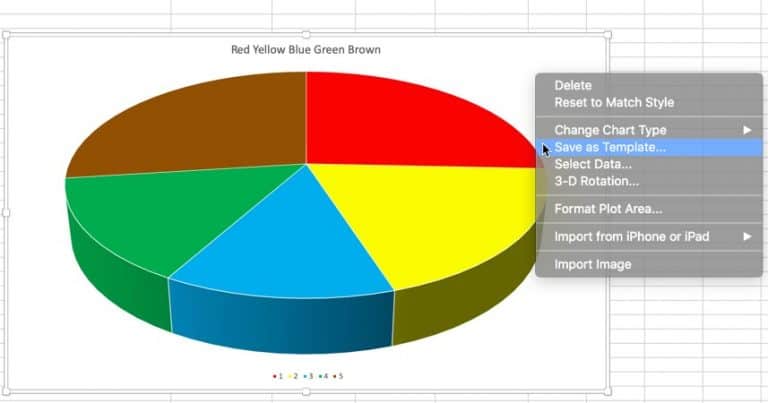25 Amazing Study Tips to Improve Your Academic Performance
Everybody wants to do well in your classes. Whether it’s math, chemistry, or computer science, we all want to do as well as we can. That leads us to study. We all study, but are we doing it correctly? It is easy to think we have it all figured out. Still, it is certainly reasonable to expect that there are things we can do to make our studying more productive. As I am naturally curious, I did some research and came up with the tips listed below.
Enclosed below are 25 excellent tips that will help you study more effectively:
- Use a sound note-taking system
- Create questions from your notes
- Use the Pomodoro Technique
- Join a study group
- Study a little bit every day
- Use flashcards
- Find a study space
- Audio record lectures if possible
- Create a study schedule
- Use tutors if available
- Sit in front of the class
- Turn off notifications on the phone
- Listen to music while studying
- Drink caffeinated beverages in moderation
- Create a reward system for studying
- Create a mind map or an outline
- Keep your study sessions short but productive
- Do not multitask while studying
- Go to bed at a consistent time every day
- Use online tools if stuck
- Hydrate regularly
- Use learning apps for phone
- Look for relationships in the content you are studying
- Do not cram for your test
- Eat nutritious foods, not Junk food before studying
I had found that when I stick to the tips on this list, I did far better on my exams that when I didn’t follow them. I hope you can incorporate some of these tips into your study routine is that you see excellent results.
Before we get started, if you are looking to improve your writing, you should really check out Grammarly. Grammarly is a godsend for those who have to write term papers, dissertations, or anything else you write that needs to be grammatically correct. Grammarly doesn’t just check grammar either. It helps you to write clearly and effectively by checking for overused words and unclear phrases. Best of all, Grammarly has a great free tier to get started with. For more information on Grammarly, click the link below:
Grammarly – Great Writing, Simplified
If you are looking for the best study tools out there, you should read our article on the best study tools to enhance your studying at the link below:
The Ultimate Study Tools You Must Use to Succeed!
If you are looking to learn on the go, Audible is for you. Audible has a huge library of audiobooks on a variety of topics and listening to audiobooks is a great way to learn on the go. Audible includes podcasts and Audible Originals as well. For more information on Audible, click the link below to get your first 30 days on Audible for free:
Audible – Your First Audiobook is On Us
Use a Good Note-Taking System
Before you start studying, you need something to study from, in most cases, this will be your notes. Your notes will form the nucleus of your studying workflow. Following the garbage in garbage out methodology, it stands to reason that if you take weak notes, your studying will suffer. So the question becomes, how do I take notes effectively? The answer is to have a reliable, consistent note-taking system that reinforces the material that you are attempting to learn.

You might be asking yourself right now do I need to come up with a note-taking system? The answer is no. Several established note-taking systems are excellent at helping you prepare for exams. The one I choose to use is the Cornell note-taking system. The Cornell note-taking system is built to:
- Capture the key concepts you’re trying to learn
- Reinforce those concepts can a consistent manner
One of the key benefits of the system is that it encourages you to create questions based on the notes that you’ve taken. Creating your questions is essential. The key to learning is not just to write down the material, but to internalize it by thinking about the concepts presented. By making questions, you force yourself to process the information and look for relationships in the data. Quizzing yourself reinforces your learning. It gives you a review mechanism that you can use every day that will very likely mirror what you should expect to see on the exam.
If you would like more information on the Cornell Note-Taking Method and how it can help boost your note-taking skills, click the link below:
Create Questions From Your Notes
As referenced in the prior section, it is imperative to create questions. Whether you use the Cornell system referenced above or not, you should endeavor to create your questions and review them regularly. Creating questions forces your brain to process your notes. Once your mind is engaged, it will start to look for relationships in the concepts you are studying. Because to create the questions, you have to have a base level of understanding of the content. It also forces you to put the content in your own words, which has the benefit of allowing you to internalize the data.

Part of doing well on tests is practicing for them. It’s not enough to study your notes. Creating questions allows you to simulate the exam-taking process effectively. It also puts you in test mode. Being in test mode will enable you to:
- Feel more confident in your ability to do well on the test
- Reduce the stress that many feel leading up to exams
Use The Pomodoro Technique
Once you know how to take notes effectively, the next step is to set up a time-based system that you will use to study. If we leave studying to whenever we feel like it, the amount of studying that we will do is likely less than if we had a set schedule for studying. The challenge is, what system should we use? There are many different systems you can use. The key is to settle on one and use it consistently. Consistency is key.
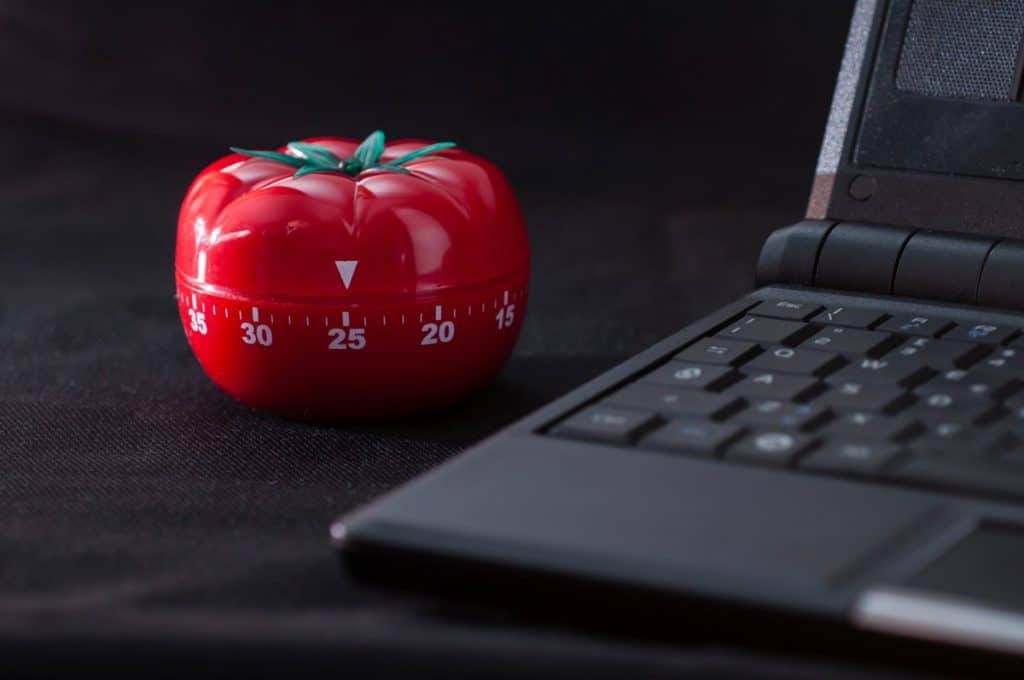
I use the Pomodoro Technique. The Pomodoro Technique is a time-based system that breaks up your work into small bite-sized chunks of time called Pomodoros. A Pomodoro is a unit of 25 minutes. The way that the Pomodoro Technique works is that you work in a 25-minute increment followed by a five-minute break. Once your five-minute break is complete, resume working, adding another Pomodoro of 25 minutes. Once you have completed four Pomodoros, you will take a more extended break, typically at least a half-hour. The reason why you are taking an extended break is that you want to give your brain a chance to relax and reset itself. Remember we are studying, not cramming. I wrote an article on the Pomodoro Technique and how valuable it could be. If you’re interested in learning more about the Pomodoro Technique, please check out the article below.
The Pomodoro Technique – Why It Works So Well
Join a Study Group
I am an introvert. I prefer to do things by myself because I lack basic social skills, so why am I recommending that you join a study group? The answer is simple. No matter how smart you are or how diligent of a note-taker you are, you will, at some point, miss some data that is important for the exam. It happens to all of us.
Additionally, there are times when we don’t understand the concepts that we are trying to learn. Sometimes we need another perspective, one that is different than our own. This need for a new perspective is where a study group comes in handy. Study groups allow you to collectively work towards a shared goal: doing well on the exam. Study groups also allow you to pull your notes together to create a cohesive set of knowledge that the entire group can use.

How do you find a study group? Finding a study group will require you to venture out and make contact with your classmates. Sorry but that is the way it goes. While you will experience some discomfort talking to people you don’t know, the benefits are greater than the cost. There is something that you must understand when joining a study group. The first is that joining a study group does not replace studying by yourself. It is a supplement to your existing study routine. If you want to be the most hated person in your study group, don’t study before attending your study group. No one likes deadweight in a study group, and if you don’t prepare, you are the dead weight. Plus, it’s very inconsiderate to the others in your group that are working hard to study for the exam. So please, for your sake, come prepared for your study group.
Study A Little Bit Every Day
There’s a saying: Rome wasn’t built in a day. It is a cliche, but it’s a cliche for a reason. To accomplish anything significant, you have to chip away at it in small chunks. This idea is especially true when it comes to studying. There is little doubt that the best way to study is to do it consistently every day in small chunks. That doesn’t mean that we don’t cram and put off studying to the last minute. We all have done it, and yet we still we’ll do it again if we don’t drill into our heads that preparation is absolutely necessary for long-term success.
Whether you use the Pomodoro Technique or some other time-based system to schedule your study time, you must treat your study time as something that you do consistently.

One of the things I do to ensure that I set enough time for studying is setting a reminder on my phone every day at the same time, if possible, to study. This scheduling takes the guesswork out of finding time to study. I know from personal experience that if it is left to chance that I study, I simply won’t. There are far too many distractions in fun activities that I want to do instead. Additionally, studying a little bit every day reinforces the information that you’ve learned the prior days. The more times you interact with content, the better you get at understanding it. If you wait till the last minute, you limit the number of times you have to interact with the content and, therefore, to learn it. This procrastination reduces the likelihood that you will retain the information in a meaningful way. So set up a schedule for studying and stick to it. It will pay off in the long run.
Use Flashcards
This one may seem basic and simple, but it is true, so it’s worth mentioning. Flashcards work as a question-answer mechanism that allows you to drill in concepts repetitively. Similar to the create exam questions idea that we talked about earlier, using flashcards allows you to drill every day, the concepts you learned in the days prior. Repetition is the mother of skill. And flashcards, in my opinion, are the best way to repetitively learn the concepts you need to learn to do well on your exams.
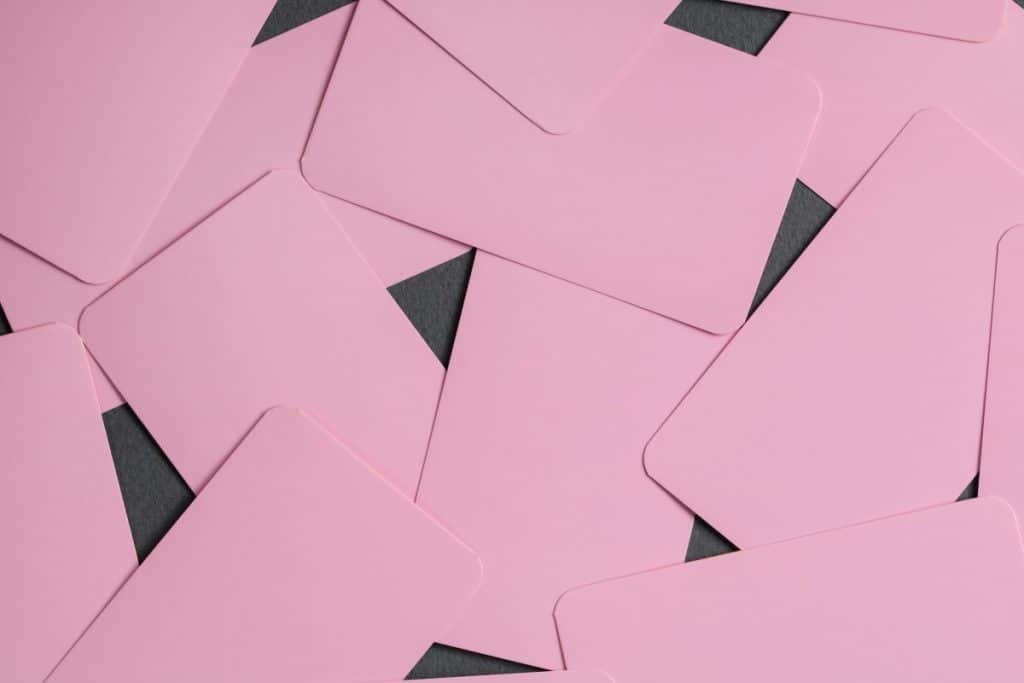
You don’t have to get super fancy with your flashcards. Simply write your question on one side and the appropriate response on the other. The format of your flashcards is not important as much as the frequency in which you use them. Be consistently good, not occasionally great. That is the key to being a good student.
Find A Study Space
Now that we have some ideas on how to study, the next question is where to study? The obvious thing you want to look for in a study space is quiet. If the area is noisy, it will be very difficult to concentrate without noise-canceling headphones. Even then, depending on the quality of the headphones, you still may be distracted. The area you choose as your study space should also have some level of solitude to it. If there is a lot of the hustle and bustle around you, like say in a coffee house or cafeteria, it will be much harder to concentrate. You will find yourself people watching. Libraries are awesome study places. I tend to look for the most remote part of the library that has a table that I can sit at and study. Ideally, I want a study zone disconnected from the outside world.

While it’s great to have a study space, having only one place to study can get very boring and mundane. Sometimes you need variety to continue doing a repetitive activity like studying. Try to find two or three different places that you can use in a rotation to keep studying fresh. Studying is already a hard activity to motivate yourself to do consistently. Anything you could do to mix it up and make it somewhat more exciting is awesome; it will only help you be more consistent with your studies.
Audio Record Lectures If Possible
This one may or may not be permissible depending on your class any instructor’s policy. But if it is possible, you should record all the lectures. The primary reason why you want to do this is that sometimes when you’re busy writing notes down, you can miss nuances that the professor is trying to communicate. Additionally, some professors speak very quickly, and you may miss parts of what they’re saying. Having an audio recording of the lecture allows you to review it and clean up your notes.
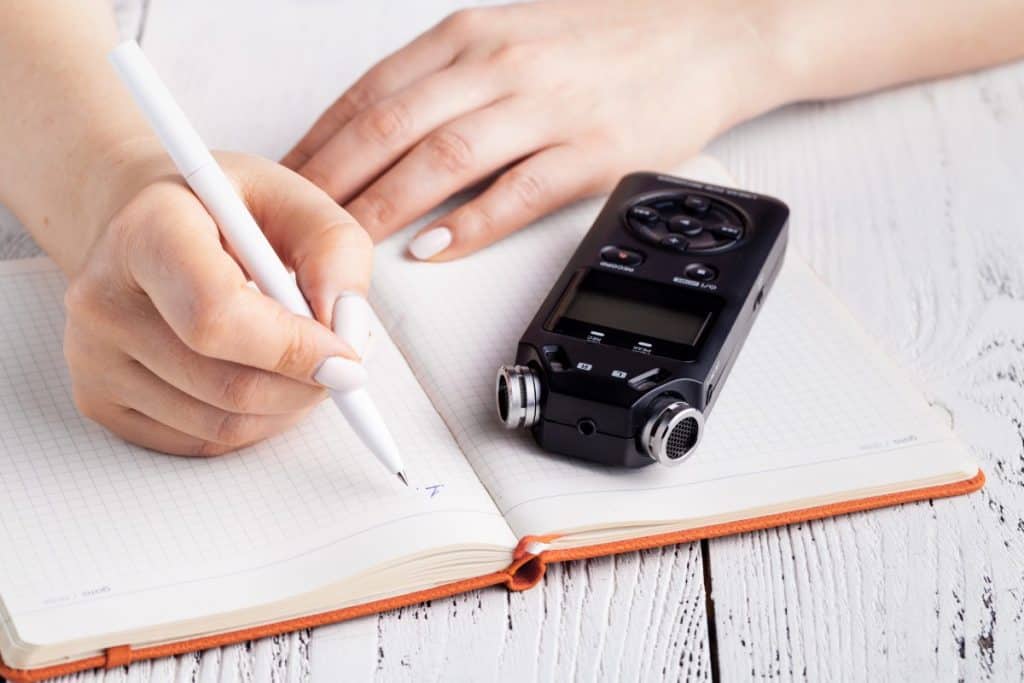
Additionally, having an audio recording allows you to replay it while doing mundane activities like walking to class as an example. Tony Robbins calls this N.E.T. time (No Extra Time). N.E.T. time is the time that you have when you’re:
- Doing something else that doesn’t require a ton of brainpower
- The time that you typically would not be able to use for anything else.
Using this time to re-listen to a lecture helps to reinforce the concepts taught in that lecture as you’re being exposed to it multiple times.
Create a Study Schedule
We talked about blocking out time every day for studying. Creating a study schedule forces you to map out the specific times and days that you will be studying a significant piece of time. Typically I would use Google Calendar for this as it syncs with all my devices, However, a physical calendar is fine if that’s what you prefer. The important thing is to map out your days to proactively schedule your study time. If you don’t schedule your time, you will find yourself studying a lot less than if you had. There’s a saying that what you focus on gets done. If you make studying a true priority by scheduling it every day or at least at a consistent schedule, you are much more likely to do it. This increased priority will lead, in all likelihood, to better results on the exam.
Use Tutors If Available
Especially in college, there are typically tutors or teacher assistants that are made available to the students. They normally have set hours where they are available to work with students. In my opinion, this is a great resource to have in your studying toolbox. The ability to have someone other than the instructor who can answer your questions and be a resource to you is valuable. It is absolutely in your best interest to use these resources as much as possible. Everyone gets stuck at some point during a course, and it is important to not sit by yourself did not get the help you need. If you have a question, reach out to your tutor or teaching assistant clarification.

It is important to understand that the tutors and/or teacher assistants are there to assist you, not do the work for you. Much like with the study groups, if you show up unprepared, the tutor or teaching assistant will not take pity on you as you are wasting their time. Do the work ahead of time and use the teaching assistant as the clarification resource for any concepts that you don’t fully grasp. Again, they are there to assist you, and you are doing yourself a disservice if you do not use them when needed.
Sit In Front Of The Class
No, I am not a nerd, but whenever I took a class, I always tried to sit in the front. The reason I did this was that it forced me to focus on the lecture. In fact, the farther I sat from the front of the class, the more I found myself daydreaming rather than learning. Sitting in front of the class forces you to engage the class. It forces you to pay attention in part because you’re afraid that if you don’t, the professor will call you out on it as you are right in front of them. Sitting in front of the class also has the side effect that the other students think that you might be really smart, someone they want to be in a study group with, which, as we spoke about earlier, is something that you want to be a part of.
Turn Off Notifications On Your Phone
This one is a no-brainer, but we rarely do it. We all think that we’re going to miss out on something major if we turn off notifications on our phones. The reality is; it’s not true. You can take a break from Instagram or Tik Tok long enough to get your studying done. The idea of being constantly connected to the world sounds enticing, but it’s a trap if you’re not careful. We all know that the constant notifications, along with our use of social media, have contributed to a general decline in the ability to concentrate for extended periods. Therefore, we must be proactive in ensuring that we set ourselves up for success by disabling notifications on our phones until we have completed our study time. Many people will try to rationalize to see they must be connected just in case something bad happens and someone needs to get a hold of them. Unless you are a doctor or caring for someone who is ill and needs your attention, this is very likely not the case. Turn off notifications, put the phone down, and get the work done. It’s just that simple but, admittedly, very hard to do.
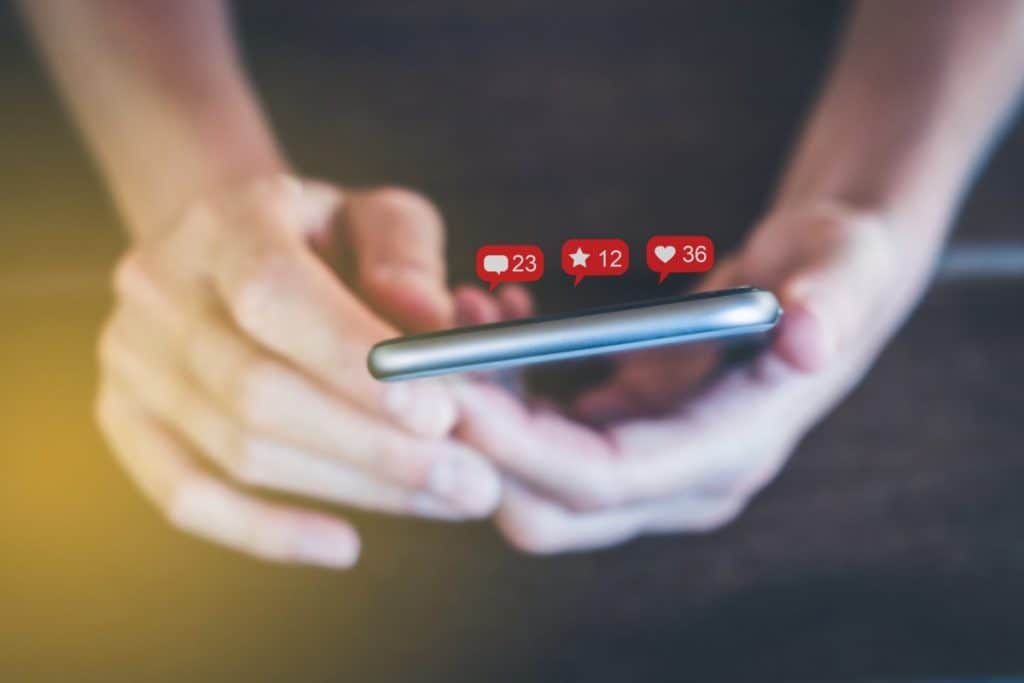
I have never regretted silencing my phone. However, I have regretted not preparing as much as I could have for an exam. Don’t make that mistake. Study first, and when you finish, feel free to indulge in whatever app or social media service you desire as much as you want because you completed your studying.
Listen To Music While Studying
This one is a bit controversial as some people will find music to be distracting while studying. However, for some people like myself, music can be a very helpful tool in my study regimen. Music can help enable your mind not to be bored while studying. I know that I found it hard to study without music. Sometimes I need that little extra push that music that helps give me. I typically use either music that I listen to all the time or lyricless music. I find that listening to songs down not familiar with that has lyrics is distracting. I find myself concentrating on the lyrics rather than my content. However, music that doesn’t have lyrics acts as a background soundtrack to the stuff that I’m learning.

I wrote an article on whether you should listen to music while studying that includes several playlists I like to listen to while studying. If you’re interested in either the article or the playlists that I recommend, click the link below:
Drink Caffeinated Beverages In Moderation
Caffeine, in moderation, can be a useful study aid. Coffee and tea, in particular, have some very real benefits to the study process — the key as with all things in moderation. A little bit of caffeine can be good, but too much caffeine leaves the jitters and trouble focusing. I find it best to drink both caffeinated beverages and water. Drinking too much caffeine can dehydrate you.

I wrote an article about drinking coffee while studying and the potential benefits that can occur from doing so. If you’re interested in learning more, click on the link below:
Should You Drink Coffee While Studying?
Create A Reward System For Studying
Trying to get yourself to do something that provides no immediate gratification can be very hard to do. While you do get the deferred gratification of a good grade, it doesn’t help motivate you in the short-term to study. Therefore it could be beneficial to set up a reward system for studying. Think of it as the gamification of studying. Each time you study, give yourself a small reward. That reward could be a cappuccino at your favorite coffee shop or allowing yourself to watch two episodes of your favorite show on Netflix. The key is that the benefit is valuable to you. The reward is valuable enough that it motivates you to study. It is also beneficial to map out your benefits for each study session ahead of time. That way you won’t just give yourself the reward without studying.
Create A Mind Map Or An Outline
Taking notes is great. However, some people need a different way of viewing the concept they are trying to learn. Some people are visual learners, while others prefer to structure their notes in a hierarchical structure like an outline. With a visual learner, mind maps can make a lot of sense. A mind map is a visual diagram showing the inter-relationships between pieces of data. A mind map allows you to create a visual hierarchical flow of data and the various relationships between different pieces of that data. For those that are more visual or artistically oriented, mind maps can help make concepts more understandable.
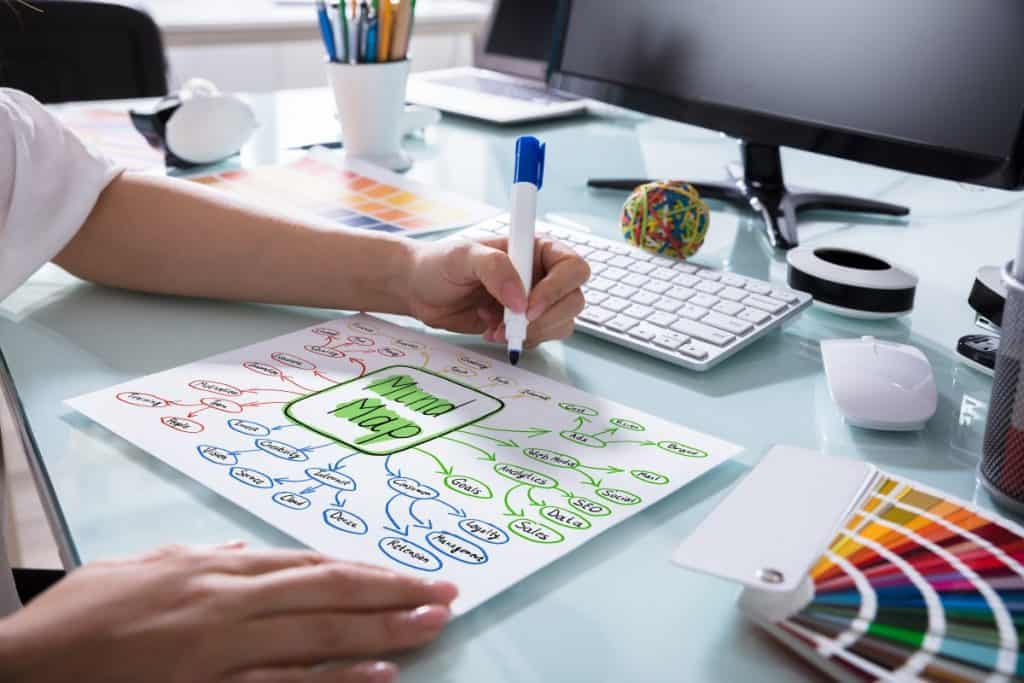
For more analytical people, outlines can make a lot of sense. And I want to allow you to create a hierarchical structure using text. Both approaches have their merits. Some people use both methods depending on:
- What they’re trying to learn
- The tools available to them.
I wrote an article on how do you create mind maps. If you’re interested, please click the link below:
Keep Your Study Sessions Short But Productive
There’s a common misconception that the longer you study, the better. This idea is not the case. While it is theoretically possible to get on a roll or in a flow, it is far better to break up your study sessions into short bursts of study time. As we mentioned, when we discussed the Pomodoro Technique, the idea is to give yourselves some breaks periodically to let your mind rest and refocus. The longer the study session, the more draining it will be mentally. It is also harder to get yourself to study if you know you to be sitting there for hours doing it without a break. It is far easier to get yourself to do something for 25 minutes. I mean 25 minutes is nothing. Twenty-five minutes is enough time to get something done and to build momentum, which is essential for getting your study done. So keep your sessions relatively short and give yourself frequent breaks. I think you will find that you will be more productive and will retain more information using this methodology than doing one long study session.
Do Not Multitask While Studying
Multitasking is a myth. The human brain was not built to multitask. The human brain was built to focus on a single task at a time. The idea that we could be watching The Mandalorian while reading a textbook on how to create recursive functions is a non-starter. You simply won’t be able to process the information as well as if you would just concentrate solely on the textbook. When you’re multitasking, you are not multitasking. Rather, you are task switching. Task-switching has a cognitive mental cost you pay each time you switch from one thing to the other. Using the watching the Mandalorian while learning recursive functions example, you switch from watching the Mandalorian to reading the textbook and back again over and over again during a set amount of time. Each time that you switch, you incur a mental cost. Additionally, you don’t save time doing this. Instead, you spend more time because you have to re-review text over and over again because you are not giving it your full focus.

So does this mean that you shouldn’t watch the Mandalorian? Not at all. What it means is you should do your work first then watch the Mandalorian. I think you will find that you get through the material far faster if you just dedicate a set amount of time to learning it without the distraction of watching T.V. It is far better to focus on one task and get it done and move on to the next that it is to tread water doing two tasks in a mediocre fashion.
Go To Bed At A Consistent Time Every Day

Why is your bedtime a study tip? Because to learn most efficiently, you want to be in a peak state. Part of being in a peak state is being extremely well-rested. If your bedtime varies from night-to-night, you will find yourself in various degrees of rest each day. There have been studies done that show that people who go to bed at the same time every night actually get an academic boost from doing so. Your body craves consistency. Whether you’re talking about your diet, your level of exercise, or how much you rest, it is important to be consistent to be in optimal condition to learn. I realize that the average college student has an active social calendar. However, it is important to understand that keeping a relatively consistent sleep schedule will pay off. The payoff will be in terms of your ability to focus and have any energy to study effectively.
Use Online Tools If Stuck.
Sometimes you get stuck when you’re studying. You don’t understand the concept, and there is no one you can reach out to. Fortunately, we live in the age of the internet, where the answer to most questions just requires a handful of keystrokes. If you are stuck on a math problem, you can check out sites like the Khan Academy. Are you a computer science major trying to learn how to write something in Java, check out stack overflow. For almost all majors in question, there’s a resource on the internet dedicated to answering those questions.
Hydrate Regularly

We talked about caffeine earlier, but the one drink you must have is water. To maintain focus, it is a good idea to carry a water bottle with you at all times. That way when you are thirsty or feel a little parched; you can simply sip out of your water jug and continue working. The benefits of water to the body, in general, are well-documented. It just makes sense to keep yourself hydrated as it helps you to stay in optimal condition to learn.
Use Learning Apps On Your Phone
Much like the internet has tons of services that are out there to help you with your studies, both the Apple and Google App Stores have a plethora of apps that are designed to help you with various subjects. An example of an app that I use all the time is Photomath. Photomath is an app that uses the camera on your phone along with some A.I. to figure out math problems. It is the closest thing to magic I’ve ever seen in an app. While Photomath is an awesome app, the fact is there are many apps out there that can help you based on whatever subject you’re trying to learn. If you’re studying a foreign language, you need to check out Duolingo. There are a million apps out there to teach you how to write code in both app stores.
Look For Relationships In The Concepts You Are Studying
Trying to learn by rote memorization is very hard. Especially when the concepts are complex and potentially interrelated to other concepts you are also studying. When studying a concept, try to figure out how it relates to other concepts that you are studying. You can do this in a variety of ways. One way is to draw a simple diagram and try to figure out relationships between the various concepts. This drawing can be as structured as a mind map or simply a line drawing. The important thing is that you’re attempting to create these relationships or at least understand them. Once you have created a handful of these relationships that you think might work, bring them to your study group and see if it makes sense. Take the feedback and adjust accordingly.
Do Not Cram For Your Exam
Cramming for your exam is the worst possible scenario. Cramming means that you did not adequately prepare for the exam before it, and you are attempting to play catch-up. The reality is that no amount of cramming will overcome the lack of thorough preparation that could be achieved by studying a little bit each day. The amount of pressure and stress that cramming creates is greater than the benefit you get from cramming. Also, the whole idea of cramming is to just memorize enough to do well on the test, rather than to study the content deeply. The fact is that in many courses, each section of the course build upon the prior one, much like building a house starts with a foundation. If you do a bad job building the foundation, it is very likely that the house will suffer. This analogy holds for your performance in class as well. If you barely get by in one section, it’ll be that much harder to learn the material in the following sections. It’s essential to becoming a good student and doing well academically. Take a little bit of time each day and review your material, and you will find that you will not need to cram to do well on the exam.

If you are reading this with a test to take tomorrow and you didn’t study properly, read our guide to how to study for a test at the last minute linked below:
How to Study Last Minute for a Test
Eat Nutritious Foods, Not Junk Food Before Testing
Much like drinking water is an essential part of keeping yourself in optimal condition for learning, it follows that you should also nourish your body with healthy foods in the weeks preparing for your exam. We all know that eating junk food is bad for us. We all have felt the effects of overindulging on our favorite fast food. The feeling of lethargy immediately following doesn’t lend itself to study effectively. If you’re craving your favorite fast food, instead of eating it before you study, use it as a reward for doing well on the exam. If you do well on the exam, feel free to celebrate your victory by indulging in your favorite fast food meal. You’ve earned it.
Want More Tips and Tricks? Subscribe to our Newsletter!
If you haven’t already subscribed, please subscribe to The Productive Engineer newsletter. It is filled with tips and tricks on how to get the most out of the productivity apps you use every day. We hate spam as much as you do and promise only to send you stuff we think will help you get things done.
Check Out Our YouTube Channel!
We have a YouTube channel now and we are working hard to fill it with tips, tricks, how-tos, and tutorials. Click the link below to check it out!
Check out our Resources Page
Check out our resources page for the products and services we use every day to get things done or make our lives a little easier at the link below:
